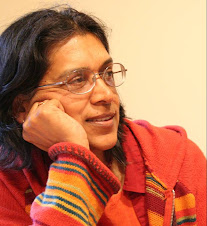Sometimes good things happen in twos.
First, Co-hosted by MediaX and Pratham, we successfully launched the first in a series of vibrant conversations with industry change-makers and social pioneers on "Technology and Education: Creating Innovative Ways to Learn".
Second, my book chapter Digital Provide: Education Beyond Borders published in 2011 IGI Global title, “Streaming Media Delivery in Higher Education“, was recently chosen for indexing in the Thomson Reuters Book Citation Index - i.e somebody thinks its great research and worth reading!. Here is the abstract below:
In the last ten years, the world has witnessed immense advances in media and Internet technologies. Through examination of the use of social media, virtual collaboration platforms, and live streamed access to images, graphics, and video, this chapter offers a new approach to education which calls for leaders to use technology to inform and connect teachers, students, and the community. Similar to the changes in the entertainment industry, educational institutions can adopt an interactive, collaborative, and socially aware model of knowledge creation to engage more students and encourage innovation in issues of global scope. The value of making this change is examined through curricula that stress multidisciplinary projects and provide hands on experiential learning. Lacking the market forces of the entertainment industry, being primarily supported by public funds, education institutions face more legal, political and business model barriers. However, the benefits of digital media so far outweigh the risks that the next decade will see the emergence of learning environments that provide as much of a quantum leap in pedagogy as did the advent of the printing press more than five hundred years ago. Examples of the emotional appeal of digital media combined with the relatively low cost of scaling with the Internet are provided as impetus to overcome resistance to change in creating new institutions of learning.
First, Co-hosted by MediaX and Pratham, we successfully launched the first in a series of vibrant conversations with industry change-makers and social pioneers on "Technology and Education: Creating Innovative Ways to Learn".
Second, my book chapter Digital Provide: Education Beyond Borders published in 2011 IGI Global title, “Streaming Media Delivery in Higher Education“, was recently chosen for indexing in the Thomson Reuters Book Citation Index - i.e somebody thinks its great research and worth reading!. Here is the abstract below:
In the last ten years, the world has witnessed immense advances in media and Internet technologies. Through examination of the use of social media, virtual collaboration platforms, and live streamed access to images, graphics, and video, this chapter offers a new approach to education which calls for leaders to use technology to inform and connect teachers, students, and the community. Similar to the changes in the entertainment industry, educational institutions can adopt an interactive, collaborative, and socially aware model of knowledge creation to engage more students and encourage innovation in issues of global scope. The value of making this change is examined through curricula that stress multidisciplinary projects and provide hands on experiential learning. Lacking the market forces of the entertainment industry, being primarily supported by public funds, education institutions face more legal, political and business model barriers. However, the benefits of digital media so far outweigh the risks that the next decade will see the emergence of learning environments that provide as much of a quantum leap in pedagogy as did the advent of the printing press more than five hundred years ago. Examples of the emotional appeal of digital media combined with the relatively low cost of scaling with the Internet are provided as impetus to overcome resistance to change in creating new institutions of learning.




